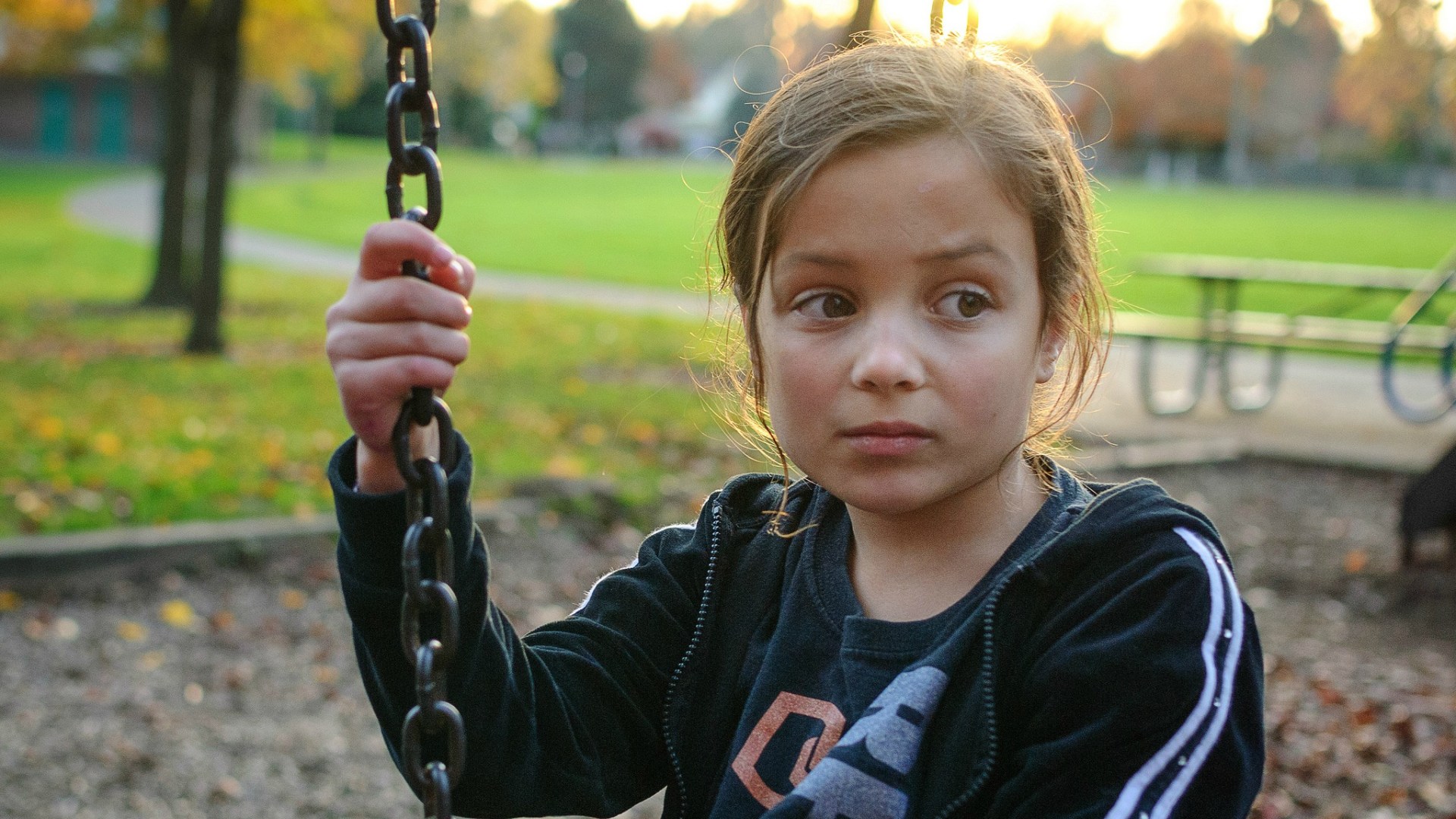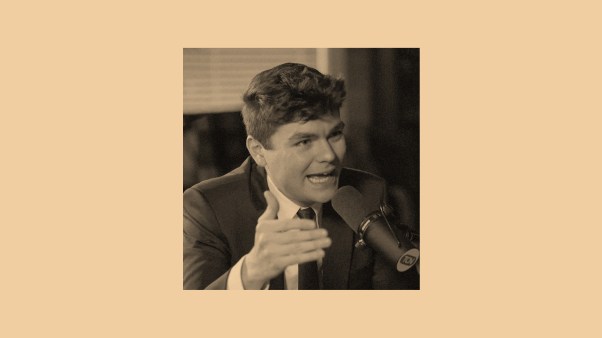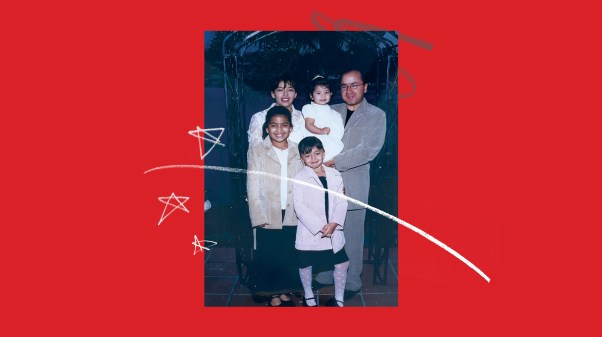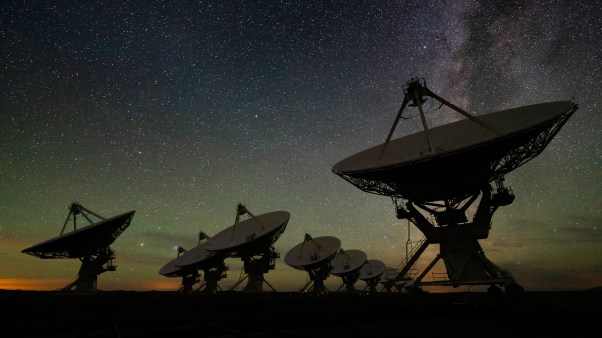Author Amy Simpson, a regular Her.meneutics writer, has previously shared with us about various aspects of mental health, including the church’s response to mental illness, the language we use to talk about mental disorders, and the rise in depression and OCD among new moms.
Her new book, Anxious, came out this fall and addresses worry in particular—the struggle to choose faith and find peace in a world that seems to fuel anxiety over every thing, big or small.
The excerpt below comes from a chapter entitled, "The Fallacy of Possession."
If the unknowable future is our most frequent cause for worry, perhaps our most gripping and powerful worries grow in the fertile soil of fears for the people and things we love—and we mistakenly believe belong to us.
Although we rarely discuss them in the same sermon or Bible study, it’s no accident that right before Jesus’ admonition to “consider the lilies of the field” in Matthew 6, he told his followers, “Don’t store up treasures here on earth” (v. 19). When he said, “That is why I tell you not to worry about everyday life,” he was referring to his previous sentence: “You cannot serve both God and money.” He knew that our attachment to the treasures of this life was a primary cause for worry— and distraction from trusting and serving God.
Most of us are so busy storing up our treasures—in the form of the possessions and people we love—that we lose sight of the truth that everything and everyone belongs to God. He is the true owner of everything we think is ours and the one ultimately responsible for the people in our lives. He has granted us responsibility as stewards of riches and relationships, but he has not given us the ultimate responsibility that belongs only to him. We can experience freedom in recognizing our true role as caretakers, not owners.
We worry a lot about our possessions. And as people with plenty, we have much to worry about. I live in an area that is prone to flooding—not the old-fashioned kind that involves living on a flood plain, but the kind that happens when heavy rains overwhelm the storm sewer and the dirty water that’s supposed to be flowing away from our neighborhood’s houses instead backs up into them. As in other places, the weather in our area has grown more extreme in recent years, and in the seven years we have spent in our current home, we have been threatened with this kind of flooding at least two or three times each year. Thanks be to God, a former owner installed a backflow valve in the house—we discovered this by accident after we moved in. If we hadn’t closed this valve each time water threatened, we would have had serious (and disgusting) flooding.
But just because it hasn’t happened yet doesn’t mean it won’t happen. What if one of these torrential rainstorms happens while we’re away from home and we can’t get back in time to manually close the valve? Our carpet, drywall and electronics would be ruined, along with furniture and possibly appliances like our washer and dryer and our hot water heater.
Several of our friends and neighbors have had significant flooding in their basements in recent years. So nowadays, when I see a big rainstorm coming, my stomach threatens to turn inside out. I worry about our house and our belongings. Usually, I also recognize the irony in this worry. If I didn’t have so much—a nice, comfortable house with a basement, carpet, computers and upholstered furniture, I’d have far less anxiety about flooding because I would have much less at stake.
We all worry about the risks that come with modern abundance: cars break down, investments lose money, appliances stop working, refrigerators and freezers aren’t any good when the power goes out. We feel we need most of these conveniences, and we think we own them. Although we aren’t wrong to have washers and dryers, carpet and vacuum cleaners, we are wrong to believe they are ours or that God has given them to us merely for our own comfort and happiness. If we held them loosely, we’d have far less to worry about.
Our treasures aren’t just material goods. We are tremendously possessive of people as well, and the misconception that they are ours generates a lot of worry—particularly for parents.
Treasured People
When I asked several people why they worry, one friend answered, “I worry because I love.” She also told me, “Being a mom inherently means worry. All the dangers lurking out there in the world can really paralyze me when it comes to my kids.” Whether parents or not, we can all relate to that statement. We worry about people we love.
As I mentioned earlier, my mother has schizophrenia. Schizophrenia is a cyclical disorder, and most people who have it go through times of relative stability and times of great instability. Unfortunately, unstable periods can have dramatic consequences—people wander off, commit crimes, find themselves homeless with no idea who they are or where they came from, become victims of violence, live in terror of the dangers their delusions and paranoia tell them are very real and imminent. Although my mom takes medication and receives psychiatric care, her illness makes her vulnerable, and she has cycled through these times of instability since I was fourteen years old.
When Mom is going through a period of instability, my family tries our best to take good care of her, but sometimes we are forced to recognize that she has wandered outside the scope of our care. When she left home without leaving much of a trace, we tried to track her down and laid awake at night, visualizing bad things that could happen to her. When she rejected her faith in Christ and dove into the occult, we grieved and worried over her spiritual condition. After she was convicted of a crime while living in a homeless shelter and not taking medication, we agonized when she went to prison, imagining mistreatment and despair. But ultimately, for all our worry, we couldn’t control what happened in those situations.
As I lay in bed one night, grieving over Mom’s troubles, begging God to help her and asking him to show me what to do, I heard God speak to me and assure me that Mom was not outside his care. He had not and would not let go of her—but I had to let go. I had to acknowledge that Mom was in God’s hands, physically and spiritually. I had to admit that terrible things could happen to her (and some did), but I couldn’t prevent them, and my worry was worthless. My prayers and my love were the very best ministry I could offer both her and me.
As my friend pointed out, parents are especially prone to worry— worry comes as a side dish with the tremendous helping of responsibility in raising children. Another friend told me, “I also worry about my children in this ever-changing world—will they be passionate followers of Christ and will they be able to hold strong with everything else beating loudly for their love and attention?”
The first night after my husband and I brought our oldest daughter home from the hospital, I crept over to her crib multiple times to make sure she was still breathing. Now she’s a teenager, and I’ll confess I still can’t go to sleep until I make sure she and her younger sister are breathing.
Race to Nowhere is a 2009 documentary that highlights one cancerous effect of parental worry, specifically about their kids’ chances at success in life. “Featuring the heartbreaking stories of students across the country who have been pushed to the brink by over-scheduling, over-testing and the relentless pressure to achieve,” this film offers compelling evidence of how performance pressure is hurting children. As parents feel pressure from an educational and cultural system that preys on their fears, they push kids to perform to some undefined optimal standard.
Kids respond, often with hard work and high achievement, but they also pay with high levels of anxiety, display psychological and physical illnesses, resort to habitual cheating, sometimes burn out before they’re twenty, and struggle to discover who they are and what they want to do. The irony is that all this pressure, anxiety and high performance are pointless. They don’t produce happier, smarter or more fulfilled children or adults; they just produce anxious people who know how to work the system (in the film, one teacher calls them “robots”) but never reach that elusive goal called success.
All people belong to God, not to us. Parents, our kids don’t belong to us. God has called us to positions of responsibility in our children’s lives. But we do not have ultimate responsibility for them—God does. It does no good—in fact, it causes harm—for us to worry over them and try to adopt a measure of control we do not have. We need to entrust them to God.
This is true not only for parents. Many of us worry about friends and relatives, as I do about my mom. Some worry about people they don’t know, like those who don’t follow Christ or who live in poverty or suffer under persecution. We are right to care about all such people. We are right to care for them as we can and as our care will help, not hurt. But we aren’t right to try to control them, to take ownership of their spiritual destiny, to push them into the life we want for them. They all belong to God, who has called us to love and to pray, and to take action as God’s Spirit calls and equips us to do so. But he never calls us to worry.
Taken from Anxious by Amy Simpson. Copyright (c) 2014 by Amy Simpson. Used by permission of InterVarsity Press, P.O. Box 1400, Downers Grove, IL 60515-1426. www.ivpress.com









